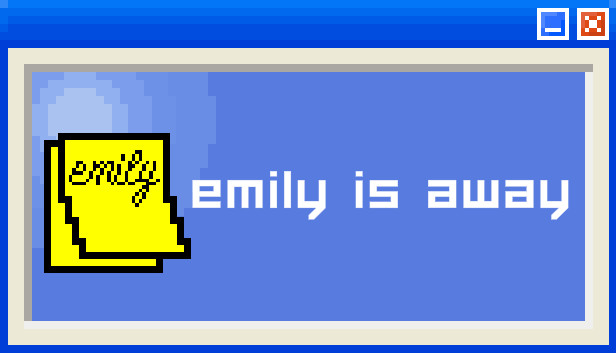
Emily is Away
Compared to other games, Emily is Away is most similar to Depression Quest. It even uses a similar trick of pretending to allow certain actions, only to immediately negate them. And while I wouldn’t say I love Depression Quest, it at least had a point and made it quickly. Neither of those things apply to Emily is Away. The closest thing it has to a purpose is as a deconstruction of choice-driven adventure games, in that it invites you to discover how little your choices actually matter, because real humans don’t alter their entire lives based on a handful of divergent actions. The problem is that retrying different paths through mundane conversations only to arrive at a functionally identical, unsatisfying conclusion isn’t remotely engaging. In fact, navigating these conversations isn’t even engaging the first time, because the characters are so overwhelmingly ordinary and barely defined. On top of this, the game’s only other claim to fame, its pixelated recreation of a mid-2000s AIM client, is an ultimately hollow effort whose function could have been replaced with a picture of a calendar.